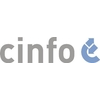
Nutrition Specialist - Food Systems for Children - P4
cinfoBrussels, BelgiumHow can you make a difference?
In support to UNICEF Senior Advisor, Food Systems for Children, the key functions of the UNICEF Programme Specialist, Food Systems for Children, are summarized as follows :
Supports UNICEF's global work on Food Systems for Children, which aims to improve child nutrition and development outcomes through strategic actions in food systems to improve the quality of children's foods, food environments and food practices.
- Supports leadership and coordination to improve the quality of children's foods, food environments and food practices from early childhood, though the school years into adolescence, in line with the UNICEF Strategy 2020-2030.
- Supports leadership and coordination of global advocacy efforts on food systems actions to deliver nutritious, safe, affordable and sustainable diets for children in all programming settings – including for children living in fragile and crises contexts.
- Supports leadership and coordination for the provision of high quality and timely technical support to UNICEF regional offices and country teams on food systems actions to improve the quality of children's foods, food environments and food practices.
- Supports leadership and coordination of UNICEF's knowledge generation and knowledge management function as it relates to UNICEF's and partners' actions, results and learnings in transforming food systems for children's nutrition and development.
Leads UNICEF's global work to improve the quality of children's foods through large scale food fortification – including flour fortification and universal salt iodization – and other initiatives to improve therapeutic, fortified and complementary foods for children.
To qualify as an advocate for every child you will have...
For every Child, you demonstrate...
UNICEF's values of Care, Respect, Integrity, Trust, Accountability (CRITA), and sustainability
Please click to view UNICEF's core values and to view our competency framework.
UNICEF competencies required for this post are.
UNICEF is here to serve the world's most disadvantaged children and our global workforce must reflect the diversity of those children. , irrespective of their race / ethnicity, age, disability, gender identity, sexual orientation, religion, nationality, socio-economic background, or any other personal characteristic.
We offer a , a wide range of benefits to our staff, including paid parental leave, breastfeeding breaks, and . UNICEF strongly encourages the use of flexible working arrangements.
UNICEF has a zero-tolerance policy on conduct that is incompatible with the aims and objectives of the United Nations and UNICEF, including sexual exploitation and abuse, sexual harassment, abuse of authority, and discrimination.
UNICEF is committed to promoting the protection and safeguarding of all children. All selected candidates will, therefore, undergo rigorous reference and background checks, and will be expected to adhere to these standards and principles.
Background checks will include the verification of academic credential(s) and employment history. Selected candidates may be required to provide additional information to conduct a background check.
UNICEF appointments are subject to medical clearance.
Issuance of a visa by the host country of the duty station, which will be facilitated by UNICEF, is required for IP positions. Appointments may also be subject to inoculation (vaccination) requirements, including against SARS-CoV-2 (Covid).
Government employees that are considered for employment with UNICEF are normally required to resign from their government before taking up an assignment with UNICEF.
UNICEF reserves the right to withdraw an offer of appointment, without compensation, if a visa or medical clearance is not obtained, or necessary inoculation requirements are not met, within a reasonable period for any reason.
UNICEF only considers higher educational qualifications obtained from an institution accredited / recognized in the World Higher Education Database (WHED), a list updated by the International Association of Universities (IAU) / United Nations Educational, Scientific and Cultural Organization (UNESCO). The list can be accessed at "
For more information on remuneration and benefits, please visit . If you would like to find estimates for entitlements, you may use the online